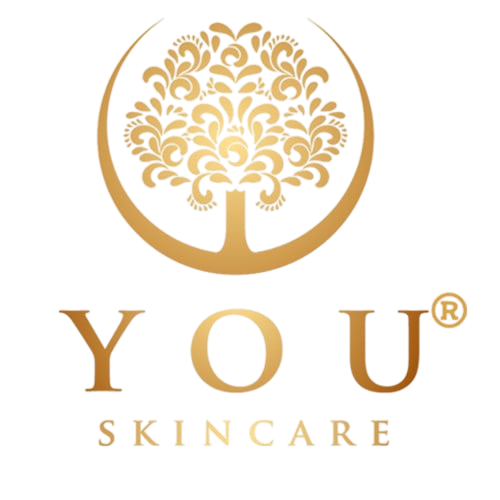December 15, 2024
Skin health is deeply personal, shaped by an interplay of genetics, lifestyle, and environmental factors. Among these, ethnicity stands out as a crucial determinant influencing how our skin reacts to the world around us. Whether it’s sensitivity to certain products, a predisposition to dryness, or resilience against environmental irritants, understanding the unique characteristics of your skin based on ethnicity can empower you to make better skincare choices.
For YOU Skincare, inclusivity is not just a buzzword—it’s the foundation of how we design our products. By exploring the science behind ethnic differences in skin physiology, we aim to help you personalize your skincare routine and achieve clear, healthy skin that reflects your inner confidence.
The Science of Ethnic Differences in Skin
Skin physiology varies significantly across ethnic groups, influencing how different skin types respond to environmental stressors, irritants, and products. These differences stem from factors such as skin barrier function, moisture retention, and pH levels. For example, studies reveal that Black skin typically has a denser stratum corneum—the outermost layer of skin—offering higher resistance to certain irritants. Meanwhile, Asian skin tends to have thinner epidermal layers, making it more reactive to environmental and product-related irritants.
Another critical factor is transepidermal water loss (TEWL), which measures how much moisture escapes through the skin. Higher TEWL levels, commonly observed in Black and Asian skin, indicate a greater need for hydration-focused skincare. Additionally, variations in skin surface pH, a key determinant of how products interact with the skin, further underscore the importance of tailored skincare approaches.
Ethnicity and Irritation Response
Studies comparing ethnic groups provide valuable insights into how skin reacts to irritants. Black skin, for instance, tends to show less visible irritation—like redness—compared to Caucasian skin. However, this doesn’t mean it’s less sensitive; the higher TEWL levels in Black skin highlight the need for moisture-rich products. On the other hand, Asian skin demonstrates increased sensitivity to certain ingredients, such as sodium lauryl sulfate (SLS), a common detergent found in many cleansers. These findings emphasize the importance of gentle formulations that minimize irritation while supporting the skin’s natural barrier.
Caucasian skin, often used as a benchmark in studies, exhibits a moderate reaction to irritants. However, it’s also highly variable depending on individual genetic factors and environmental exposure. These nuances remind us that even within a single ethnic group, skincare needs can differ widely.
Environmental Factors and Skin Sensitivity
While genetics play a significant role in determining your skin’s characteristics, environmental factors also have a profound impact. Climate, humidity, and pollution levels interact with ethnic predispositions to influence skin behavior. For example, drier climates can exacerbate TEWL, particularly in Black and Asian skin, while urban environments with high pollution levels may increase irritation and accelerate signs of aging. This is why antioxidant-rich products and proper hydration are essential for protecting your skin, regardless of your ethnicity.
At YOU Skincare, we understand that no two skin types are the same. That’s why our products are crafted with inclusivity in mind, combining science-backed formulations with the flexibility to adapt to your skin’s unique requirements.
Our hydration-focused moisturizers and serums are designed to combat high TEWL levels, making them ideal for Black and Asian skin. We avoid harsh irritants like SLS in our cleansers, ensuring they’re gentle enough for sensitive skin types. Additionally, our pH-balanced products work harmoniously with all skin tones, supporting a healthy skin barrier and preventing irritation.
We also provide tailored skincare guides to help you address specific concerns, such as acne, dryness, or hyperpigmentation. Whether you’re building a routine from scratch or enhancing an existing one, YOU Skincare offers the tools and expertise to help you achieve your best skin.
Tailoring your skincare routine to your skin’s unique needs delivers transformative results. Studies consistently show that personalized care reduces irritation, improves skin texture, and enhances hydration. Beyond the physical benefits, investing in a skincare routine that works for you boosts confidence and helps you feel more comfortable in your own skin.
Your Journey to Radiant Skin Starts Here
Your skin’s story is as unique as you are. By understanding how ethnicity shapes your skin’s needs, you can make more informed decisions and unlock its full potential. At YOU Skincare, we’re here to support you every step of the way.
Explore our range of scientifically designed, inclusive products and discover the difference tailored skincare can make. Visit www.youskincare.us to shop our collections and find expert advice to guide you on your journey to radiant, healthy skin.
Because at YOU Skincare, we believe your glow is worth celebrating.
Comments will be approved before showing up.
April 07, 2025
Many of us dream of having bright, radiant skin that glows with health. Skin brightening treatments have become increasingly popular as they help reduce dark spots, even out skin tone, and restore a youthful appearance. Modern skin brightening treatments work by targeting melanin production, removing dead skin cells, and promoting cell turnover to reveal fresher, more luminous skin underneath.
January 28, 2025
Finding the right face mask for sensitive skin can be tricky. Many masks contain strong ingredients that may irritate delicate skin. But don't worry - there are great options out there.
January 27, 2025
Oily skin can be tricky to manage, but hyaluronic acid might be the secret weapon you've been looking for. This powerful skincare ingredient is known for its ability to hydrate and plump the skin. You might think adding moisture to oily skin is counterintuitive, but it's actually quite beneficial.
